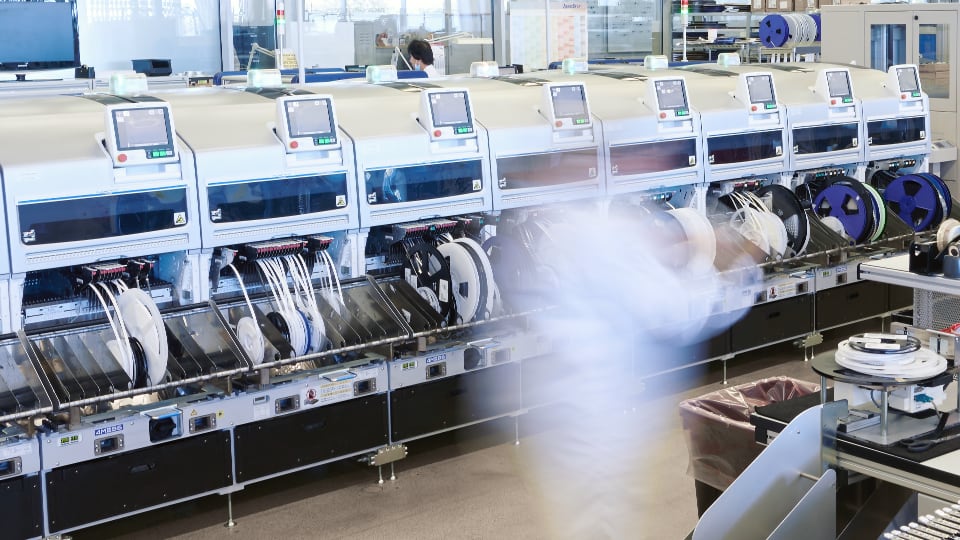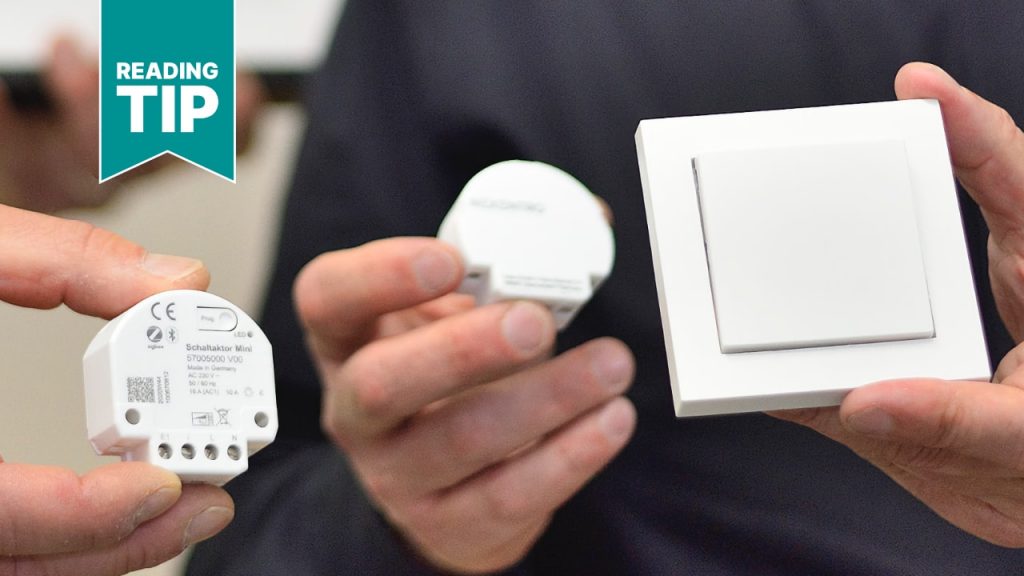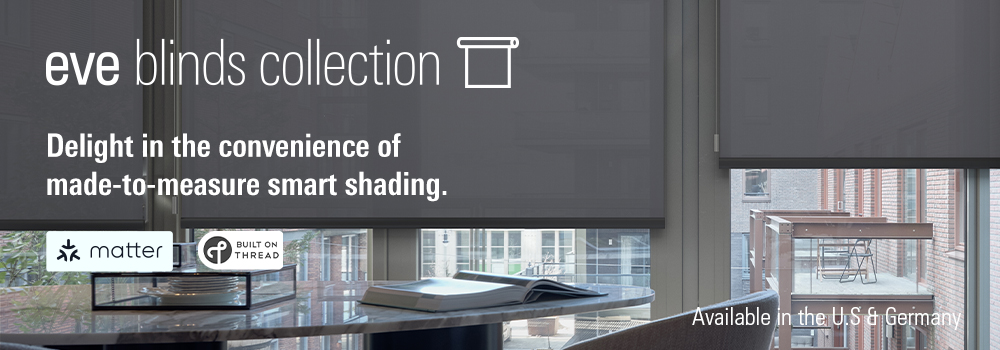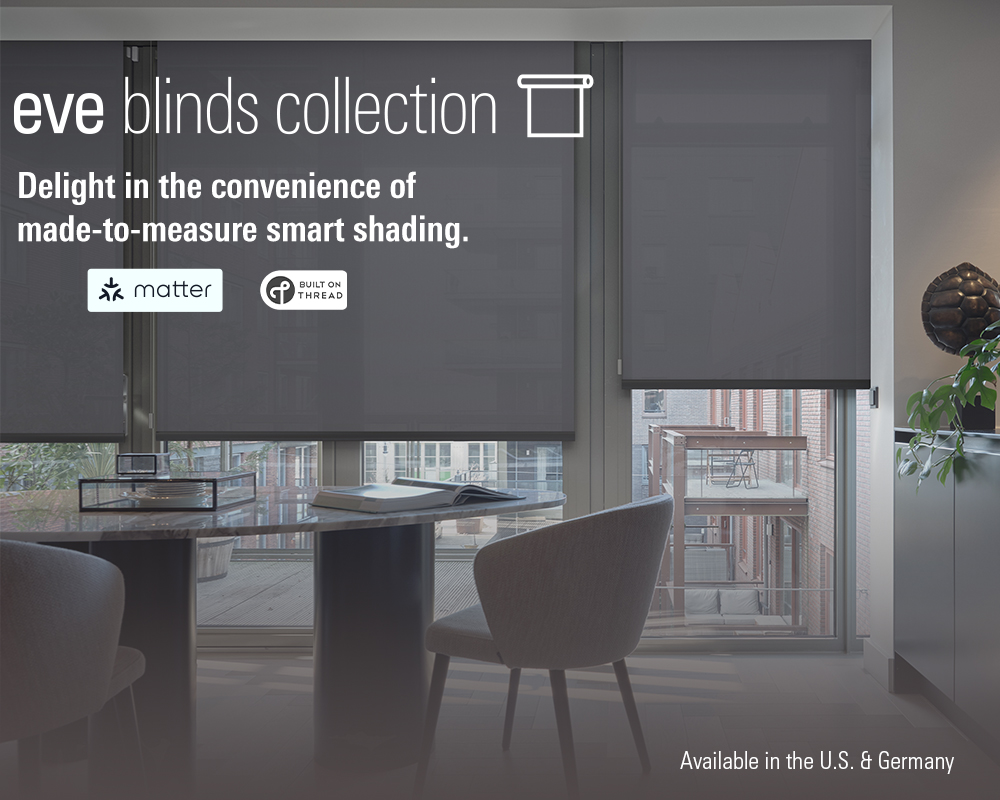
An interview with Dr. Stefan Neuhaus, Head of Innovation and Advanced Development at Insta GmbH (link). The German company has been developing and producing building technology for industrial customers for 50 years – and in the future will also back the new smart home standard Matter.
Dies ist die Übersetzung eines deutschsprachigen Interviews. Zum Original bitte hier entlang.
Insta comes from the classic installation industry. Why are you interested in Matter? The standard has more to do with products for end consumers.
Neuhaus: This is a question that we have also discussed a lot internally because it concerns the positioning of the company. Insta has been around for more than 50 years, the company has its origins in building electronics and in the 1990s opened up the field of building automation with KNX. We develop and produce for many well-known companies in the electrical installation industry. In this professional field, we are still active, successful, and basically also satisfied …
That sounds like a bit of a “but” …
Neuhaus: Well, the big smart home breakthrough has so far failed to materialize, even though the vision has existed since at least the 1930s. The first concepts were developed by Westinghouse in the U.S. in the 1950s, and functioning systems based on powerline technology were introduced in the 1970s and 1980s. Since 2000 at the latest, there has been talk every decade that smart home is finally catching on. That it’s not happening is quite a shame for companies like us.
„It is important to link the short product cycles on the consumer market with the durability of a building installation.“
What is the reason that smart home is not becoming a mainstream topic?
Neuhaus: One reason is the necessary investment. Professional building technology costs the builder or apartment owner money, which is permanently installed in the house. It is tied up there for 20 to 30 years and is expected to amortize. In return, there are strong impulses from the end consumer market. Think, for example, of music throughout the house with Wi-Fi speakers. Or voice control: The idea of operating the home by voice has been an integral part of the smart home vision since the 1980s at the latest.
But it only became reality with smart speakers from Amazon, Apple & Co. We believe it is important to link the short product cycles on the consumer market – three, five, or ten years – with the durability of a building installation. Only if there is a link between these two elements smart home can become a success for everyone, also because the necessary investment protection is provided.
And Matter can build this bridge?
Neuhaus: We believe that Matter represents an opportunity to set out the markers for the long term. In Germany and Europe, installations are usually still carried out in the traditional way during the construction phase – with light switches, thermostats, roller shutter drives and so on. There is a wide range of systems for remotely controlling and networking these installations. Specialist companies, from electricians to system integrators, put them into operation. But traditional installers are often not interested in doing all the configuration work – partly because of the current good workload. They would have to be familiar with hundreds of systems for this, or they do KNX straight away. But at the latest when it comes to individual, customized programming, many drop out. This is where specialized system integrators are needed.
In a Matter system, the end customer does the programming. Is that the solution?
Neuhaus: I’m convinced that, in the end, smart home programming has to be as easy as setting the alarm clock in your smartphone. Only then the person who lives with it can adapt the home to changes in the everyday life. After all, life doesn’t stop when the electrical installation is finished. The challenges for the electrical installation only begin then. It must be able to change with the people’s needs. But just ask how often KNX programming is changed after initial setup.
„Life doesn’t stop when the electrical installation is finished. The challenges only begin then.“
Doesn’t this put Matter in competition with established systems?
Neuhaus: No, they will continue to exist. Because Matter only defines the basic technology, not the control and operating system above it. But if I envision that the mechanism underneath – in other words, the Matter protocol – would always be the same, then the installer could benefit greatly from it. Because he does not have to deal with the specific properties and countless special features of individual systems. Thanks to standardization, he would also be able to access a variety of solutions from different manufacturers in the smart home context.
Matter’s vision also includes residents bringing their own equipment and connecting it to the existing installation. How realistic is such a “bring your own device” scenario?
Neuhaus: In the near future, this will only work to a limited extent. Up to now, many functions have not been included in the standard. For example, if you want to lower the shutters automatically to reduce the load on the air conditioning system in the summer, that’s not so easy because there are no schedules for shutters, for example. In a classic building installation, the electrician or system integrator takes on the task of setting something like this up. It’s not yet clear to me where this intelligence will come from in Matter. Because let’s not kid ourselves: The large ecosystems will only push the issue as far as it serves their business models.
Doesn’t that provide room for new and different control systems based on Matter?
Neuhaus: Matter forms precisely the foundation for realizing something like this. Most people already have an affinity for certain ecosystems, even if it’s through the operating system on their smartphone. As long as it’s a question of convenient voice control, there’s hardly any way around it. However, if I can do without speech, there’s no reason why we shouldn’t get systems that do without cloud and digital assistants.
The nice thing about Matter is that the areas are separable. Due to the multi-admin approach of the standard, several Matter networks, so-called “fabrics”, can exist in parallel and access the same smart home components. For example, a dimmer from a more professional system could also be integrated into a fabric from Google, Amazon and co. in order to use the voice control from there. If Matter then manages to put an end to the tiresome discussion about radio standards with Thread in the 2.4 gigahertz band, the whole industry could concentrate on more important things.

Does that mean the first Matter products from Insta will be with Thread radio?
Neuhaus: Yes, we are essentially only targeting Thread products. As a partner of Google in the early access program, we are already working on them. Which doesn’t mean there can’t be products with Wi-Fi or Ethernet connectivity. As an OEM manufacturer and supplier to other companies, we joined the Matter alliance very early. Our main expertise lies in the development and production of sensors and actuators for professional building systems, and that’s what we want to continue to focus on. In this context, we talk to larger customers from the building technology market about lighting, shutters, heating and ventilation.
„There is movement – as well as great uncertainty“
Are established manufacturers at all willing to throw their own proprietary wireless standards overboard?
Neuhaus: There is movement – as well as great uncertainty. Some of the companies have invested tens of millions of Euros and have long-standing relationships with the trade. Sometimes their systems solve very specific requirements. But I also know that many are starting to think about Matter for future product cycles. Which does not imply that legacy systems will become obsolete overnight. It’s more likely that companies will launch gateways for their own radio protocols and offer native Thread products in the future. Product cycles are longer than in the consumer market, so I don’t expect the big turnaround for another five to ten years. Our job at Insta is also to help industrial customers with orientation and strategic planning.
At the same time, a standard like Matter makes your products more interchangeable. How will you compete against cheaper competitors from China?
Neuhaus: This question is on our minds every day, and not just since Matter. In the Zigbee sector, it has already become the case today. Our actuator costs one and a half to twice as much as an apparently comparable product from the Far East. As Insta, however, we bring 50 years of experience and application knowledge from building electronics. Many Chinese manufacturers maintain their devices for maybe five years. Our goal is to keep our products on the market for ten, fifteen or even more years. That’s not an easy task when, for example, standards and regulations change or there is a shortage of components, as happening right now. Supply chains for critical products are also an issue. We believe in “Made in Germany” and a close-knit, consistent network of suppliers.
„In the past, the smart home scene has often allowed itself to be blinded by optimistic market forecasts.“
Matter as a driver for sustainability and more durable products, that would be something …
Neuhaus: I’ll be happy if, in the future, we no longer have to differentiate which networking technology we use. That has produced an incredible amount of waste, also among manufacturers. In the past, the smart home scene has often allowed itself to be blinded by optimistic market forecasts and developed products based on gut instinct in order to participate. Perhaps in the future there will only be KNX as a system for professional building technology and matter as a solution for smart homes driven by the end consumer market. But for that, we need an electrical installation that is flexible enough to keep up with market changes.
Dr. Neuhaus, thank you very much for this interview.
Share this information:


